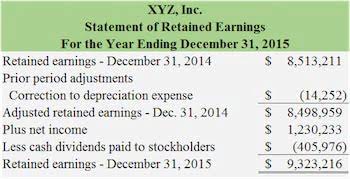
It is important to treat these digital receipts with the same diligence as paper ones. Ensure your digital receipts are properly backed up and organized, and that the system you use reliably retains all needed information. Don’t wait until the end of the tax year to start sorting through your receipts. Instead, make it a habit to update your accounts regularly—ideally weekly or monthly.

Need Help with Bookkeeping?
- Proper documentation and adherence to IRS receipt requirements are not just a legal obligation but a prudent practice to ensure smooth tax filings and potentially save money.
- Proper record-keeping and management of your receipts will not only help you maximize deductions but also provide peace of mind in the event of an audit.
- The IRS requires receipts for T&E expenses such as airfare, hotel bills, meals, and car rentals.
- Additionally, keeping investment records is important for planning your tax strategy.
- Even paper receipts for large cash purchases don’t have to be stored as physical documents.
For contributions of $250 or more, the receipt must be provided to the donor no later than January 31st of the year following the donation. When issuing a donation receipt, it is important to include all of the required information. It is important to avoid common mistakes such as providing incomplete or inaccurate receipts or issuing receipts for non-deductible items. Even if you forgot to document a cash purchase of over $75, you’re not completely out of luck. If you’re able to rustle up, say, an email to a contractor discussing the cash payment you gave them, you can use this to reconstruct that expense.
IRS Receipts Requirements: What You Need to Know
This involves confirming eligibility, collecting necessary information, creating and delivering the receipt, retaining a copy, and following up with the donor. This is because of a tax principle called the “Cohan rule,” which allows you to estimate your write-off amount for something you bought for work, but don’t have a record of buying. It was established in the famous Cohan vs. Commissioner court case from 1930. This can be particularly important for individuals who have made significant investments or incurred large expenses that could potentially be subject to review. Meanwhile, for intangible assets like patents, copyrights, and business goodwill, the concept of amortization applies.
What counts as deductible business expenses on your tax return?
This article explores the IRS’s guidelines for receipt requirements, detailing what needs to be kept, how long to keep it, and why it’s essential. 11 Financial may only transact business in those states in which it is registered, or qualifies for an exemption or exclusion from registration requirements. It is also recommended to include a brief description of the organization’s mission and how the donation will be used. This helps to establish the organization’s credibility and promotes transparency and accountability. A 501(c)(3) should send you a donation receipt, but if they have not, ask for one before trying to deduct the donation.
If your business involves a significant amount of travel, it’s efficient to use apps that track mileage and other travel expenses. These apps can automatically record and categorize these expenses, saving you time and effort. In the case of an audit, these records can help validate the legitimacy of the taxpayer’s deductions.
Is a Donation to a 501(c)( Tax Deductible?

Keep these records also to protect yourself should an issue come up with those contractors or providers in the future. Warranties for office equipment such as computers and printers are also deductible. Depreciation records must show the date the equipment was placed in service, the equipment’s original cost, and irs receipt requirements the depreciation amount each year.

In this digital era, it’s highly advisable to scan and keep digital copies of all your receipts. There are numerous dedicated tools and apps that not only allow you to scan and save your receipts but also automatically categorize and sync them with your accounting software. As a business owner, it is essential to maintain a detailed record of these expenses, as they can be significant and can help reduce the taxable income of your business. The best practice as suggested by the IRS is to ensure availability of proof for all expenses over $75, especially when deducting these as business expenses or in the case of an audit. They are commonly used between customers and vendors, but they can also be found in business-to-business deals and stock market transactions. For example, a company might provide a receipt to another company for materials purchased to create its product.
- In some cases, failure to keep proper records can even lead to criminal charges, especially if the IRS suspects fraud.
- Dedicate a specific time each week or month to handle your receipts and expenses.
- This article will guide you through the essential IRS receipt guidelines specifically designed for self-employed individuals.
- Once you understand how to keep and organize your receipts, it’s time to dive into effective strategies.
- Copies of bank statements, canceled checks, and credit card statements should be retained to substantiate financial transactions and reconcile with income and expense records.
- Meanwhile, for intangible assets like patents, copyrights, and business goodwill, the concept of amortization applies.
- Understanding the IRS receipt requirements is crucial, especially for business owners and individuals managing taxes effectively.
One of the most common mistakes when issuing donation receipts is failing to provide all of the required information. This can result in the disallowance of the donor’s tax deduction and can damage the organization’s income summary credibility. In summary, maintaining good financial records and saving relevant receipts can help you manage your finances, ensure tax compliance, and take advantage of potential deductions and credits.
How long you need to keep receipts

Business receipts are crucial for accounting and tax purposes, helping bookkeeping and payroll services track expenses, manage budgets, and prepare financial statements. While there is no strict minimum amount that triggers the need for a receipt, the IRS may ask for documentation during an audit to validate your claims. Small businesses are required to maintain detailed records of all income sources. This includes invoices, sales receipts, and any other financial transactions that contribute to the business’s revenue. It’s essential to report income accurately to prevent underreporting, which can lead to tax liabilities.